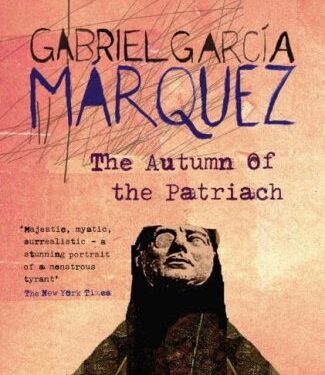How does Gabriel Garcia Marquez use the concept of religion in The Autumn of the Patriarch
Gabriel Garcia Marquez’s novel, “The Autumn of the Patriarch,” is a rich and complex work that explores various themes, including power, solitude, and the passage of time.
Religion is one of the key concepts utilized by Marquez in this novel, serving as a tool to examine the nature of power and its impact on society. In this response, we will explore how Marquez incorporates religion into the narrative, examining its role in character development, symbolism, and thematic exploration.
Also Read:-
- Discuss the theme of social injustice in Charles Dickens Oliver Twist
- Discuss the theme of freedom in Ralph Ellison’s Invisible Man
- Analyze the use of metaphor in Maya Angelou’s Still I Rise
- How does James Joyce use the concept of epiphany in Dubliners
Concept of religion in The Autumn of the Patriarch:-One of the primary ways in which Marquez employs religion in “The Autumn of the Patriarch” is through the characterization of the titular character, the patriarch. The patriarch is presented as a figure who embodies not only political power but also religious authority.
He is depicted as larger than life, almost godlike, with his subjects attributing divine qualities to him. This conflation of religious and political power emphasizes the autocratic nature of his rule and underscores the oppressive regime he maintains.
Concept of religion in The Autumn of the Patriarch:-Religion also plays a significant role in the symbolism employed throughout the novel. Marquez often utilizes biblical allusions and references to religious rituals and figures to underscore the themes of power and corruption. For example, the patriarch is compared to biblical figures such as King Herod and Pontius Pilate, highlighting his tyrannical rule and the moral bankruptcy of his regime.
Additionally, the novel contains imagery of religious ceremonies and rituals, such as the patriarch’s extravagant funerals, which serve as a commentary on the performative nature of power and the manipulation of religious symbols for political gain.
Concept of religion in The Autumn of the Patriarch:-Furthermore, religion in “The Autumn of the Patriarch” serves as a thematic exploration of the human condition and the search for meaning in the face of oppressive power structures. The novel presents a stark contrast between the patriarch’s ostentatious displays of religious piety and the spiritual emptiness that pervades his reign.
Concept of religion in The Autumn of the Patriarch:-Despite his claims of divine authority, the patriarch is ultimately portrayed as a morally bankrupt figure, devoid of genuine faith or religious conviction. This critique of religious hypocrisy extends beyond the patriarch, as the novel suggests that the institution of religion itself can be co-opted and corrupted by those in power.
Moreover, Marquez delves into the concept of religious fatalism in the novel. The characters, particularly the subjects of the patriarch, are portrayed as resigned to their fate, clinging to religious rituals and beliefs as a means of finding solace in their difficult lives. This portrayal reflects Marquez’s exploration of the ways in which religion can be used as a tool of social control, providing false hope and a means of subjugation.
Concept of religion in The Autumn of the Patriarch:-It is important to note that Marquez’s treatment of religion in “The Autumn of the Patriarch” is not wholly critical. He acknowledges the genuine spiritual needs of individuals and recognizes the potential for religion to inspire hope and offer solace in times of hardship.
However, he also highlights the dangers of religious manipulation and the potential for religion to be weaponized in service of oppressive regimes.
The Autumn of the Patriarch “Summary”
“The Autumn of the Patriarch” is a novel written by Gabriel García Márquez, originally published in 1975. It tells the story of an unnamed dictator who rules over a fictional Caribbean country.
The novel is known for its complex narrative structure and poetic language, exploring themes of power, corruption, and the nature of dictatorship.
Concept of religion in The Autumn of the Patriarch:-The book is divided into six chapters, each of which represents a different period in the dictator’s life and regime. The narrative unfolds in a nonlinear fashion, moving back and forth in time, making it challenging to establish a linear plot summary. Instead, I will provide an overview of the main themes and elements of the novel.
Concept of religion in The Autumn of the Patriarch:-The dictator is portrayed as an oppressive and despotic ruler who has maintained his grip on power for an extended period.
He controls every aspect of his country and its people, employing fear, violence, and manipulation to maintain his authority. The novel delves into the psychological complexities of the dictator, exploring his loneliness, paranoia, and the deteriorating state of his mind as he ages.
Throughout the story, the dictator’s regime is depicted as corrupt and marked by brutality. The narrative exposes the dictator’s numerous crimes, including the disappearance and torture of political opponents, the manipulation of elections, and the exploitation of the country’s resources for personal gain.
It also examines the complicity of those surrounding the dictator, such as his advisors, military officials, and the elite, who benefit from his rule.
Concept of religion in The Autumn of the Patriarch:-The novel’s style is characterized by long, intricate sentences and the absence of traditional punctuation. This stream-of-consciousness narrative reflects the chaotic and fragmented nature of the dictator’s rule and the distorted reality in which he lives. Márquez’s lyrical prose and vivid descriptions create a sense of magical realism, blurring the boundaries between reality and fantasy.
“The Autumn of the Patriarch” is a profound exploration of the consequences of absolute power and the dehumanizing effects of dictatorship. It offers a scathing critique of authoritarianism, exposing the cruelty, corruption, and decay that often accompany such regimes. The novel invites readers to reflect on the nature of power and its impact on both the ruler and the ruled.
Concept of religion in The Autumn of the Patriarch:-Please note that this summary provides a general overview of the novel and does not capture all the intricacies and details of the story. Reading the actual book will offer a richer and more nuanced understanding of Gabriel García Márquez’s masterpiece.
Conclusion
FAQ.
Q: What is “The Autumn of the Patriarch” about?
A: “The Autumn of the Patriarch” is a novel by Gabriel Garcia Marquez that delves into the life and rule of an unnamed dictator in a fictional Caribbean country. The novel explores themes of power, corruption, solitude, and the passage of time. It presents a vivid portrayal of the dictator’s tyrannical regime and its impact on the country and its people.
Q: How does Gabriel Garcia Marquez use religion in “The Autumn of the Patriarch”?
A: Marquez incorporates religion in multiple ways throughout the novel. Religion is used to highlight the patriarch’s authoritarian rule, with the character being depicted as a figure who embodies both political and religious authority. Symbolism and biblical allusions are employed to underscore the moral bankruptcy of the regime and the performative nature of power. Marquez also critiques religious hypocrisy and explores the ways in which religion can be manipulated for political gain and social control.
Q: What are some key themes in “The Autumn of the Patriarch”?
A: Some key themes in the novel include power and dictatorship, corruption, solitude, the passage of time, and the search for meaning. Marquez examines the destructive nature of absolute power and the dehumanizing effects of a tyrannical regime. The novel also explores the isolation and loneliness experienced by the patriarch, as well as the disillusionment and resignation of the people under his rule. The theme of time is intertwined throughout the narrative, highlighting the inevitable decline and decay of both individuals and regimes.
Q: What narrative techniques does Marquez employ in the novel?
A: Marquez utilizes various narrative techniques in “The Autumn of the Patriarch” to enhance the storytelling. The novel is characterized by its nonlinear structure, with fragmented and repetitive narratives that mirror the cyclical nature of power and history. Marquez also employs rich and vivid descriptions, magical realism elements, and long, intricate sentences that contribute to the dreamlike and poetic quality of the prose.
Q: How does “The Autumn of the Patriarch” reflect Marquez’s writing style?
A: “The Autumn of the Patriarch” showcases Marquez’s distinct writing style, characterized by his use of magical realism, intricate storytelling, and lyrical prose. The novel is filled with vivid and evocative descriptions, capturing the atmosphere and setting of the Caribbean country. Marquez’s exploration of complex themes and his blending of reality and fantasy are also hallmarks of his writing style, which is deeply rooted in Latin American literature.
















